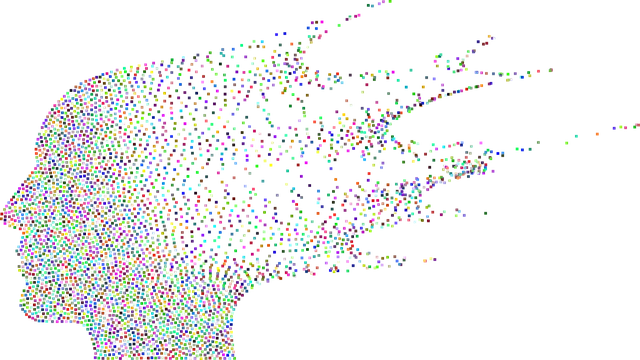The Denver Kaiser Permanente mental health center is enhancing diagnostic accuracy by prioritizing open communication and implementing diverse therapeutic approaches, such as Stress Management Workshops and Emotional Intelligence training. They're also leveraging advanced technologies like AI-driven assessment tools to capture subtle symptoms and improve initial diagnosis rates, aiming to prevent misdiagnoses that can lead to heightened anxiety, depression, or even suicidal thoughts. Continuous training for healthcare providers further ensures a nuanced understanding of emotional healing processes, setting new standards in compassionate mental illness diagnosis.
At Denver Kaiser Permanente, efforts to enhance mental illness diagnosis accuracy are revolutionizing patient care. This article delves into the current state of mental health assessment, highlighting challenges and data on prevalent misdiagnoses. It explores innovative tools like advanced assessment methods and technologies, with case studies demonstrating their impact. Additionally, it discusses training initiatives for healthcare professionals, emphasizing continuous learning and patient-centric strategies that encourage open communication and personalized care plans to improve diagnostic accuracy at Denver Kaiser Permanente mental health center.
- The Current State of Mental Illness Diagnosis at Denver Kaiser Permanente
- – Examining current challenges and limitations in diagnosis accuracy
- – Data on misdiagnoses and their impacts on patients
- Innovations in Diagnostic Tools and Techniques
The Current State of Mental Illness Diagnosis at Denver Kaiser Permanente

At Denver Kaiser Permanente mental health center, efforts are underway to enhance the accuracy and reliability of mental illness diagnoses. The current state of diagnosis at the facility reveals challenges stemming from complex symptoms that often overlap, making it difficult for healthcare professionals to pinpoint specific conditions accurately. This issue is exacerbated by the diverse cultural backgrounds of patients, who may express their struggles differently.
To address these complexities, Denver Kaiser Permanente is focusing on improving communication strategies between patients and providers. Enhancing open dialogue encourages patients to share detailed accounts of their experiences, while providers gain a deeper understanding of symptoms’ nuances. This approach aims to boost confidence among both parties, fostering an environment that facilitates accurate assessment and effective Anxiety Relief interventions tailored to individual needs.
– Examining current challenges and limitations in diagnosis accuracy

The current landscape of mental health diagnosis at institutions like the Denver Kaiser Permanente mental health center is fraught with challenges that impact accuracy. While significant strides have been made, various factors continue to hinder precise assessments. One primary issue lies in the subjective nature of symptoms, which can vary greatly among individuals, making it difficult for healthcare providers to discern specific disorders. Additionally, comorbidity—the simultaneous presence of two or more mental health conditions—is prevalent, complicating diagnostic processes and requiring more in-depth evaluations.
Further complications arise from cultural and social factors that influence how symptoms manifest and are expressed. The Denver Kaiser Permanente mental health center has recognized the need for diverse therapeutic approaches to cater to these variations, such as incorporating Stress Management Workshops Organization programs, Emotional Intelligence training, and Conflict Resolution Techniques workshops. These initiatives aim to enhance diagnostic accuracy by promoting a more holistic understanding of patients’ emotional experiences and needs.
– Data on misdiagnoses and their impacts on patients

Misdiagnoses in mental health can have profound and detrimental effects on patients’ lives. Studies show that up to 30% of individuals with mental health conditions are misdiagnosed initially, leading to delayed or inadequate treatment. At Denver Kaiser Permanente mental health center, researchers have highlighted the significant impact of these errors, including increased patient anxiety, depression, and even suicidal ideation due to incorrect diagnoses. This phenomenon underscores the urgent need for improving diagnostic accuracy.
Data from various sources, including surveys and clinical records, indicate that misdiagnoses often arise from complex factors such as comorbid conditions, patient presentation challenges, and healthcare provider limitations. For instance, symptoms of anxiety and depression can overlap, making it difficult to distinguish between the two. To address this, Denver Kaiser Permanente has implemented initiatives like Mental Wellness Journaling Exercise Guidance and Stress Management Workshops Organization, encouraging positive thinking and self-awareness among patients. Additionally, they offer specialized training for healthcare providers to enhance diagnostic skills and ensure more precise evaluations.
Innovations in Diagnostic Tools and Techniques

The Denver Kaiser Permanente mental health center has been at the forefront of revolutionizing diagnostic approaches, employing cutting-edge tools and techniques to enhance accuracy in mental illness identification. They have integrated advanced technologies, such as AI-driven assessment platforms and digital cognitive testing, to provide more objective and comprehensive evaluations. These innovations enable healthcare professionals to capture subtle nuances that may be overlooked through traditional methods, thereby improving diagnosis reliability.
Furthermore, the center emphasizes holistic evaluation, incorporating not just clinical interviews but also patient self-reporting through validated questionnaires. This multifaceted approach, coupled with ongoing training on resilience building and burnout prevention strategies for healthcare providers, ensures a nuanced understanding of emotional healing processes. By fostering an environment that supports both mental wellness among practitioners and robust diagnostic practices, the Denver Kaiser Permanente mental health center is setting new standards in accurate and compassionate mental illness diagnosis.
The journey towards enhancing mental illness diagnosis accuracy at Denver Kaiser Permanente mental health center is ongoing. By addressing current challenges, such as misdiagnosis rates and limited access to specialized services, we can significantly improve patient outcomes. Innovations in diagnostic tools and techniques, coupled with a commitment to continuous learning, offer hope for more precise and timely interventions. Ultimately, these efforts aim to create a supportive environment where individuals receive the appropriate care they need, fostering better mental health outcomes for all.






